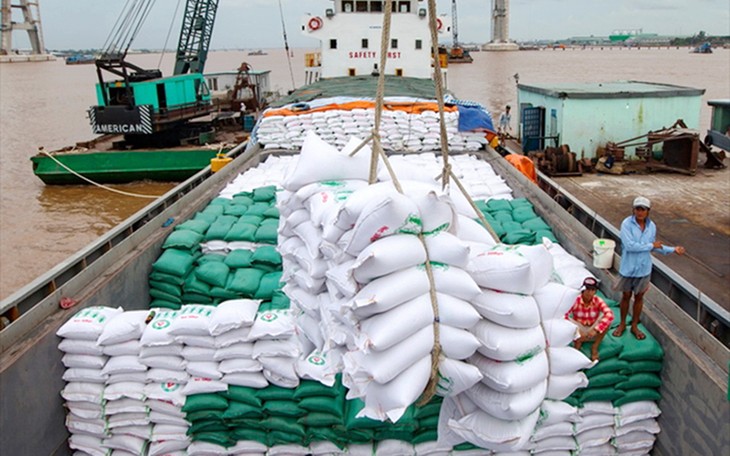(VOVWORLD) - While global food insecurity has prompted many countries to ban the export of rice, Vietnam is still expanding its rice export. Localities, businesses, and farmers have been asked to ensure the quality of rice for export and comply with the regulations of each importing country.
 Vietnam seizes opportunities seized to boost rice export Vietnam seizes opportunities seized to boost rice export |
By the end of July Vietnam had exported more than 4.8 million tons of rice, earning nearly 2.6 billion USD, up 19% in volume and 30% in value over the same period last year. Vietnam has enjoyed favorable conditions for rice production and exports.
At a conference on rice export management in Can Tho city last week, Nguyen Nhu Cuong, Director of the Department of Crop Production of the Ministry of Agriculture and Rural Development, said Vietnam will produce 43 million tons of rice this year.
"With careful preparation, we can ensure food security and manage rice exports. We can ensure food security at the highest level and be prepared for natural disasters or epidemics on a large scale," said Cuong.
The price of Vietnam's 5% broken rice has increased to 602 USD/ton and the price of Vietnam’s jasmine rice has increased to 690 USD/ton. Minister of Industry and Trade Nguyen Hong Dien said Vietnam will make every effort to take advantage of opportunities and help rice exporters expand their market and promote the Vietnamese rice brand in the world market.
"The prices of some rice varieties have increased to a record high. The Mekong Delta has increased its rice growing area to 700,000 hectares, up more than 50,000 hectares from the previous year. This year’s output is expected to exceed 43 million tonnes. With this projection, after ensuring our own food security, we anticipate exporting 7.5 to 8 million tons of rice,' said Dien.
In order to ensure national food security and promote sustainable rice production and export, the Prime Minister has issued a directive asking ministries, sectors and localities to perform reviews, make plans for large-scale rice production areas, closely monitor the world rice market, proactively regulate rice production and export, conduct trade promotion activities, and make full use of the Free Trade Agreements Vietnam has signed in order to diversify and expand markets and improve the competitiveness of Vietnamese rice.